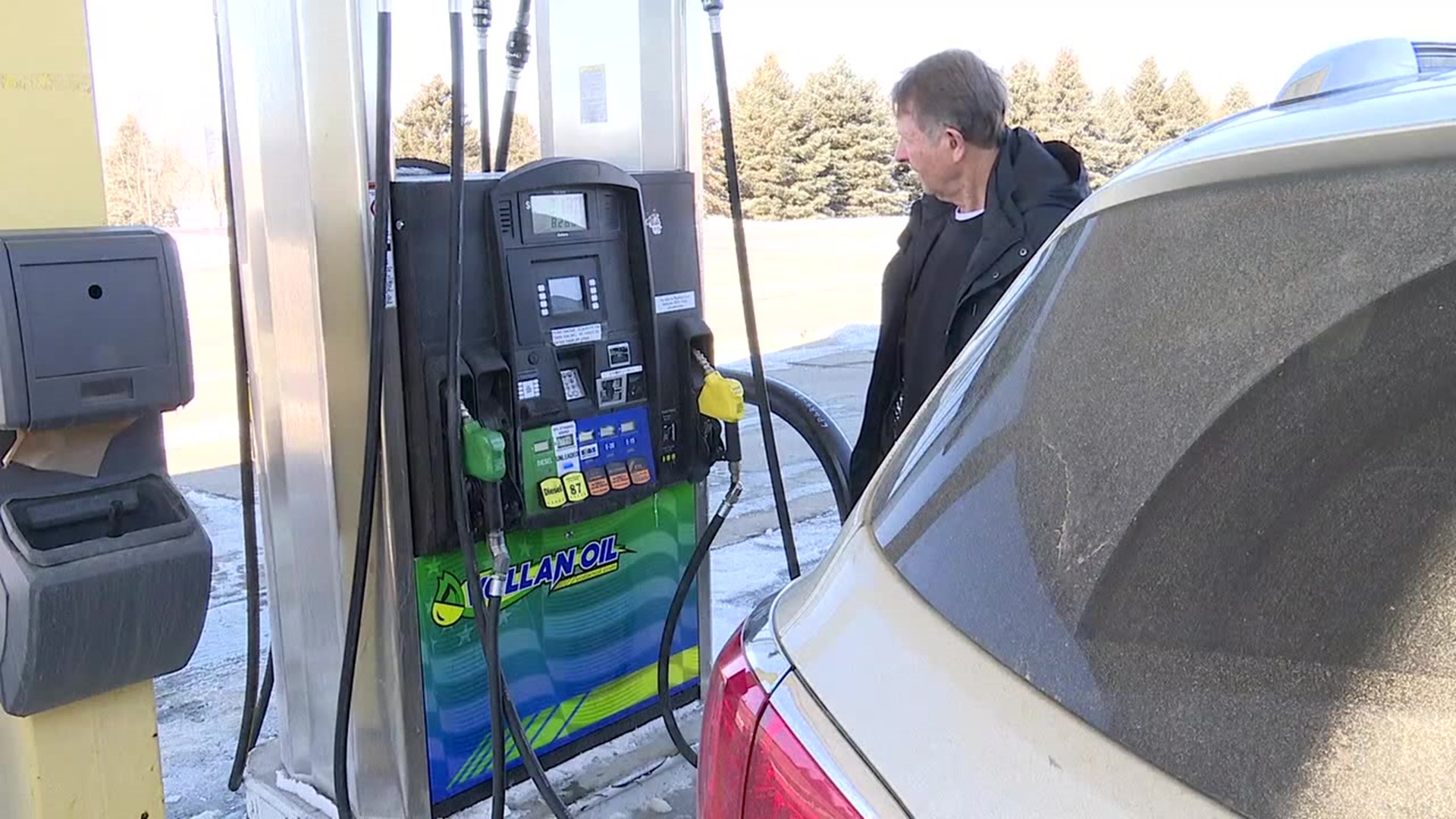LUZERNE COUNTY, Pa. — On Tuesday, President Biden announced a ban on imports of Russian oil to the United States. As prices continue climbing to record heights here in the commonwealth, one expert believes the president's announcement was not a surprise.
Russia's invasion of Ukraine is causing a ripple effect in the world oil market. The national average climbed to $4.17 on Tuesday, up $0.58 from just a week ago, with Pennsylvania topping off at an average of $4.31.
"Russia is overall a small producer to us, but this is a global commodity, and so everyone feels the effects of it," said Patrick De Haan from fuel tracking app GasBuddy.
De Haan believes the president's new ban on Russian oil imports will not cause an immediate jump in prices.
"The sanctions that existed before today largely slowed the flow of that oil anyway, and many U.S. oil companies were already curbing the flow of Russian oil," he said. "This isn't necessarily a surprise to the market. It is not going to necessarily have a shockwave."
He expects prices to keep climbing, but not as fast as we've seen in recent days. What's more important for prices, De Haan said, is what happens in Europe, a continent that receives roughly 40% of its oil and natural gas from Russia.
"If the EU were to cut off Russian energy, that would cause an absolute explosion in the price of oil," DeHaan said.
He pushed back on the president's suggestion that oil companies are engaging in price gouging.
"Oil Companies are not the ones raising prices. A lot of this is like the housing market. Everyone knows that your house is worth 25% to 35% more than a year ago. Why? Because there's less homes on the market, and there's a lot of buyers," De Haan said. "When that happens to the oil market, we see the same effect. To suggest that oil companies are simple simply manipulating prices, they don't get to set prices, the markets do."
As difficult as it may be, there is one thing De Haan said Americans can do to help lower prices.
"I know that we all need fuel, we all need to live our lives. Try to drive more fuel efficiently," he said. "The more of us to come down together and do that, and more we can reduce our consumption and the faster we can bring prices back down."
So what does all of this mean for where prices are headed? De Haan said he expects more increases, but the good news is he believes we will not see those dramatic jumps in price we've been seeing from day to day.
He does expect diesel to balloon the most, saying the average national price could rise above $5, even as high as $5.50.
Check out WNEP's YouTube page.

